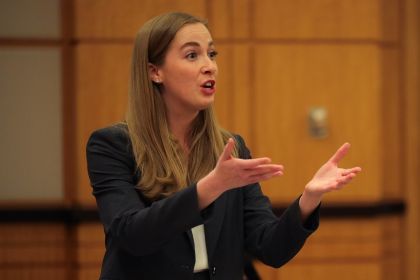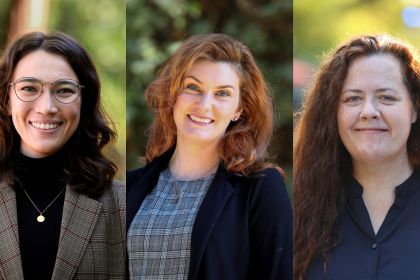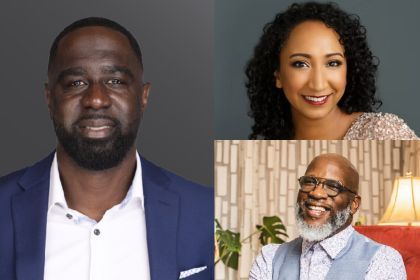Breadcrumb
McGeorge Immigration Law Clinic reaches milestone with more than 50 children represented in Immigration Court
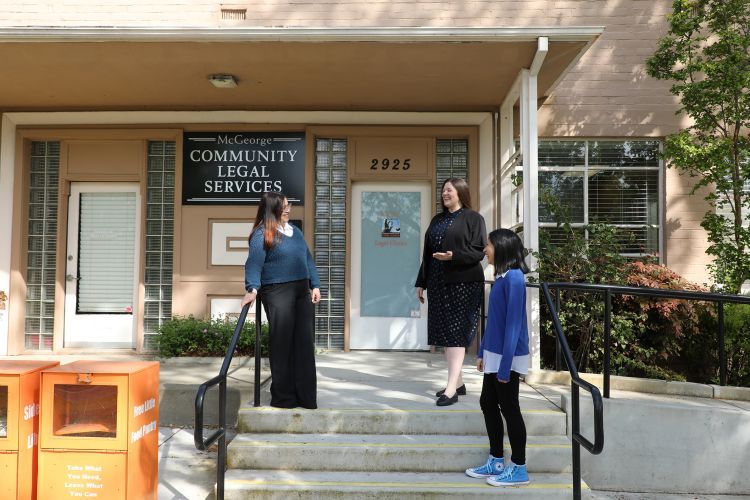
(From left to right) McGeorge School of Law recent alumni Daisy Tinoco '25, Marcie Murtha '24, and Maria Martinez '25 participated in the Immigration Law Clinic during their time in law school.
Students in the Immigration Law Clinic at the University of the Pacific McGeorge School of Law have represented more than 50 children in immigration court since launching a specialized removal defense project in 2014. Most of these children are unaccompanied minors under the age of 18 who arrived at the U.S. border without their parents, typically fleeing community and/or family violence.
All but four of the children have had their immigration court cases dismissed or administratively closed. The remaining four cases are ongoing, with a successful outcome anticipated.
“It is great to see the law students gaining important legal skills while filling a critically important role in our community. Without the assistance from our students, these children would not receive legal services. The children’s outcomes are substantially better given their legal representation. At the same time, the students are gaining skills that will serve them in any number of legal areas that they may pursue in their career,” said Professor Blake Nordahl, director of the Immigration Law Clinic.
Nine of the children are now lawful permanent residents. The others whose cases have been dismissed or closed have received deferred action, which provides protection from removal and the ability to obtain a work permit while they await permanent resident status. All the minors obtained this status through the clinic’s representation in obtaining Special Immigrant Juvenile Status (SIJS).
“In these challenging and uncertain times, it is inspiring to witness future lawyers collaborating to make a significant impact on the lives of young clients. These cases provide a unique opportunity for students and clients to work together, thereby strengthening the social fabric of our community," said Professor Linda Coco, director of legal clinics.
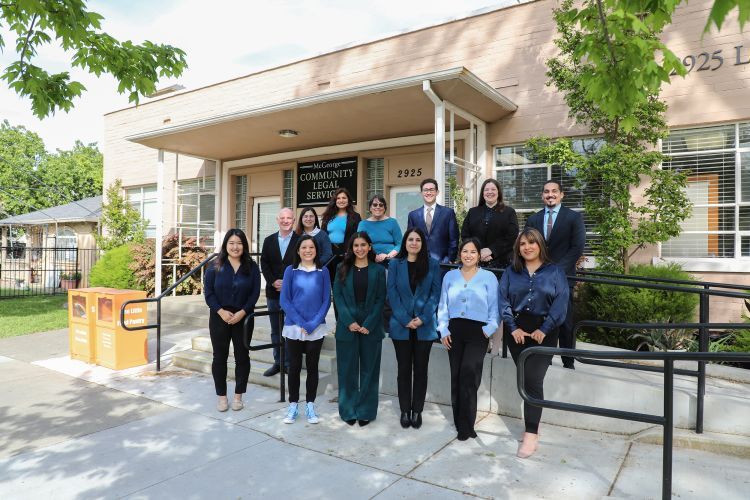
Students, staff, and faculty from McGeorge School of Law's Immigration Law Clinic.
The clinic’s first SIJS case began in 2014, when Vallerye Anderson '15 met a teenager from Guatemala during a community outreach event at a local food bank. After their meeting, she realized he qualified for SIJS, a legal pathway to permanent residency for children who meet several criteria. These include being declared dependent on a juvenile court or placed under the custody of a state agency, department, or court-appointed individual. The court must also find that reunification with one or both parents is not viable due to abuse, abandonment, or neglect, and that it is not in the child’s best interest to return to their native country.
Anderson recognized the urgency of the case, as the child’s 18th birthday was only two months away. At the time, SIJS relief in California was limited to minors under 18 (the state has since expanded eligibility to include minors aged 18–20 to align with federal immigration definitions). The clinic had not previously handled an SIJS case.
Nordahl was initially apprehensive about taking on the case due to the short timeline and the clinic’s lack of experience with the SIJS process. However, with no other legal options available to the child, the clinic agreed to proceed. Nordahl later described allowing Anderson to move forward with the case as one of the best decisions he has made in the clinic.
With assistance from a local probate attorney who donated his time and mentorship from the San Francisco office of Kids in Need of Defense (KIND), the clinic successfully filed for guardianship and obtained the necessary SIJS findings from the Superior Court less than a month before the child turned 18. Within a year, he became a permanent resident, and his immigration court case was terminated.
Over the past decade, the clinic has developed significant expertise in this area of law. Nordahl now provides training and mentorship to other attorneys interested in volunteering in this practice area.
As part of their clinic experience, students routinely prepare and represent young clients in petitions for custody and parentage in family court or guardianship in probate court. This work provides exposure to the interplay between state and federal law, as well as experience in state court, immigration court, and before the U.S. Citizenship and Immigration Services (USCIS). Students also gain critical skills in trauma-informed and age-appropriate interviewing and counseling.
The clinic also volunteers at the Sacramento Immigration Court’s Unaccompanied Minor Docket, which consists solely of unaccompanied children in removal proceedings. Immigration court does not guarantee legal representation, even for children. Without a volunteer or paid attorney, minors must represent themselves. Given the complexity of SIJS — which requires filing an independent action in Superior Court and then applying for relief with USCIS — legal representation is often essential.
In addition to legal advocacy, clinic students have supported their clients in other ways. In summer 2024, students raised funds from alumni, local businesses, and the broader University of the Pacific community to provide school-age clients with back-to-school outfits, backpacks, and supplies.
In addition to the Immigration Law Clinic, McGeorge operates six other legal clinics in Sacramento, including the Bankruptcy Clinic, Buccola Family Homeless Advocacy Clinic, Elder and Health Law Clinic, Federal Defender Clinic, Legislative and Public Policy Clinic, and Prisoner Civil Rights Mediation Clinic.


